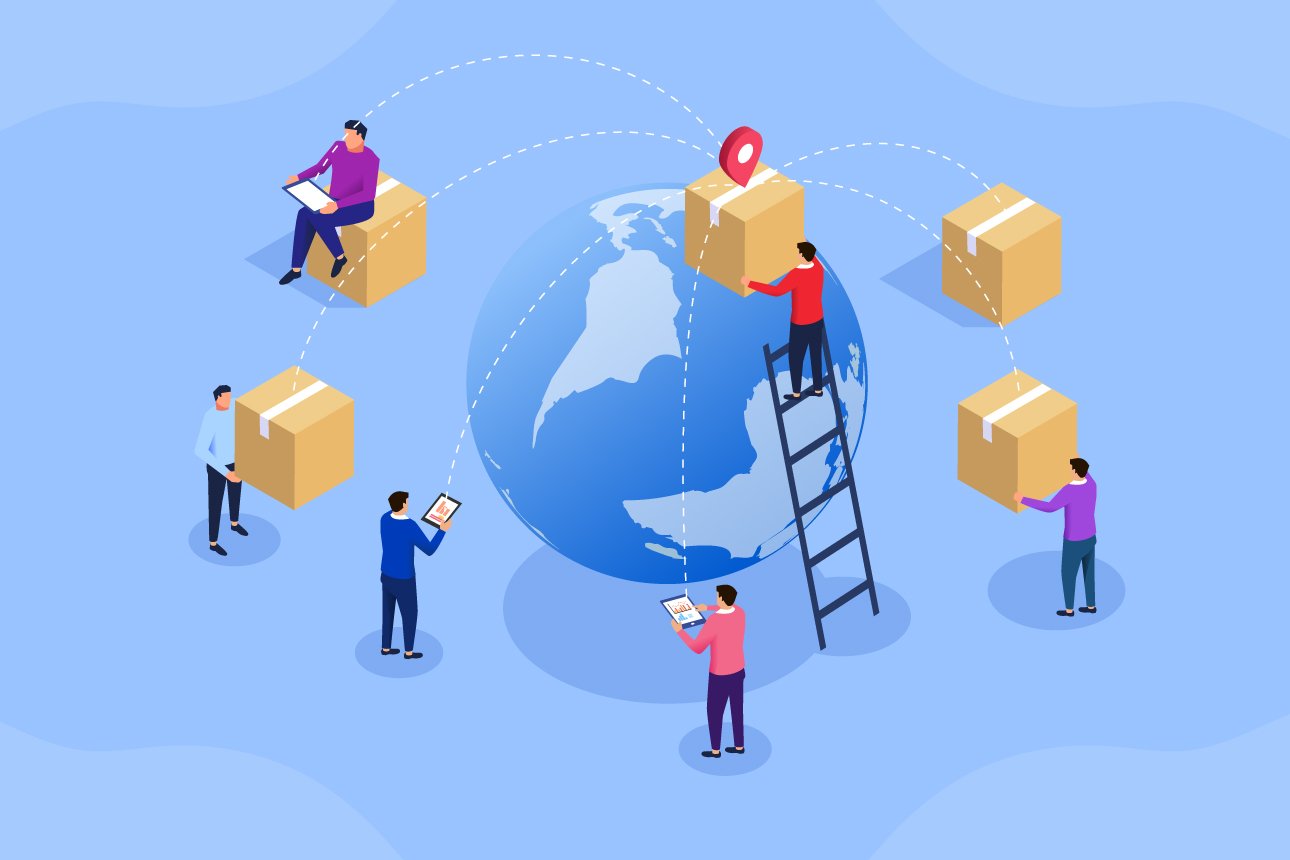As global trade becomes more dynamic and customer expectations rise, businesses are under pressure to eliminate delays, reduce friction, and gain full control over their supply chains. From inventory management to last-mile delivery, every stage needs to work in sync.
It’s no surprise that a 2024 Deloitte report found that 62% of companies with end-to-end supply chain visibility achieved faster delivery times and better cost control, clear proof that integration drives performance.
That’s exactly where WareOne logistics comes in, offering full-spectrum solutions that bring everything from warehousing to last-mile delivery under one digital roof.
Why End-to-End Logistics Services are Essential
Traditional logistics models often involve multiple vendors across different stages, leading to delays, gaps in communication, and rising operational costs. In contrast, end-to-end logistics providers offer an integrated approach, managing the entire journey of goods from origin to destination under a single system.
This model not only reduces friction but also offers the following benefits:
- Real-time shipment visibility
- Optimised route planning and fleet coordination
- Better inventory control and warehouse management
- Faster customs clearance and compliance tracking
The Role of End-to-End Logistics Companies in Streamlining Supply Chains in Qatar
Partnering with an end-to-end logistics company isn’t just about moving goods; it’s about simplifying your operations, boosting efficiency, and staying competitive. Here’s how working with a fully integrated logistics partner can benefit your business in Qatar:
-
Seamless Coordination Across the Supply Chain
When every stage, from warehousing to delivery, is handled by one provider, there’s less room for error. End-to-end logistics companies ensure better communication, fewer handovers, and smoother workflows. This means fewer delays and more satisfied customers.
-
Real-Time Visibility and Control
Modern logistics providers offer digital platforms that let you track inventory, shipments, and deliveries in real time. With complete supply chain transparency, you can make faster decisions, minimise risks, and respond quickly to changing market demands.
-
Cost Savings Through Consolidation
Managing multiple vendors can lead to hidden costs and inefficiencies. With one integrated provider, you streamline billing, reduce admin work, and benefit from optimised routes and consolidated shipments, all of which save time and money.
-
Local Expertise, Global Standards
Logistics in Qatar is unique, with its regulations, customs processes, and infrastructure. A capable end-to-end provider understands these nuances while also aligning with global standards, helping you navigate both local and international logistics with ease.
-
Scalability and Flexibility
Whether you’re scaling operations across the GCC or adjusting for seasonal demand, end-to-end logistics companies give you the flexibility to adapt quickly. They offer scalable warehousing, fleet support, and fulfilment services that grow with your business.
-
Strategic Edge in a Competitive Market
In a region where speed, reliability, and compliance are expected, having a logistics partner that handles it all gives you a clear advantage. It builds trust with stakeholders and positions your business as efficient, responsive, and ready for growth.
The Shift Toward Integrated Logistics in Qatar
As Qatar’s supply chains become more complex, businesses are turning to integrated logistics partners to simplify operations and stay competitive. End-to-end logistics providers offer full-spectrum solutions, from warehousing to last-mile delivery, bringing efficiency, visibility, and speed under one roof.
Key drivers behind this growing demand include:
- Increased trade volumes fuelled by Qatar’s infrastructure expansion and global connectivity.
- Rising customer expectations for fast, transparent, and on-time deliveries.
- Operational cost pressures are driving the need for consolidation and smarter workflows.
- Regulatory alignment requires seamless documentation and compliance.
- Digital transformation is pushing for real-time visibility and centralised control.
- Market scalability, where businesses need logistics that flex with demand.
This shift reflects a broader trend: logistics is no longer just a support function; it’s a strategic growth enabler.
Challenges Still Facing Qatar’s Logistics Sector
While Qatar has made impressive strides in building a modern, efficient logistics ecosystem, several challenges remain that could impact scalability and performance, especially as supply chain demands grow more complex.
Key hurdles include:
- Shortage of skilled logistics talent: Despite infrastructure readiness, the sector still faces a gap in trained professionals for warehouse tech, analytics, and fleet optimisation.
- Cross-border compliance friction: Varying regulations across GCC countries can create delays and require extra documentation and planning.
- High cold chain demand: Industries like pharma and food services are outpacing available temperature-controlled storage and transport capacity.
- Urban last-mile congestion: As e-commerce grows, densely populated areas face traffic and delivery bottlenecks.
- Tech adoption gaps among SMEs: While larger companies embrace digital tools, small-to-mid-sized businesses often struggle with cost and implementation.
Addressing these issues through public-private collaboration, workforce upskilling, and technology accessibility will be key to maintaining momentum in Qatar’s logistics evolution.
Final Thoughts
Qatar’s logistics sector is entering a new era, powered by digital transformation, infrastructure growth, and the increasing need for fully integrated solutions. End-to-end logistics providers are no longer optional; they’re essential for businesses seeking visibility, speed, and control in a competitive global supply chain.
As the landscape continues to evolve, companies that embrace smarter logistics partnerships will be better positioned to scale, adapt, and lead.





